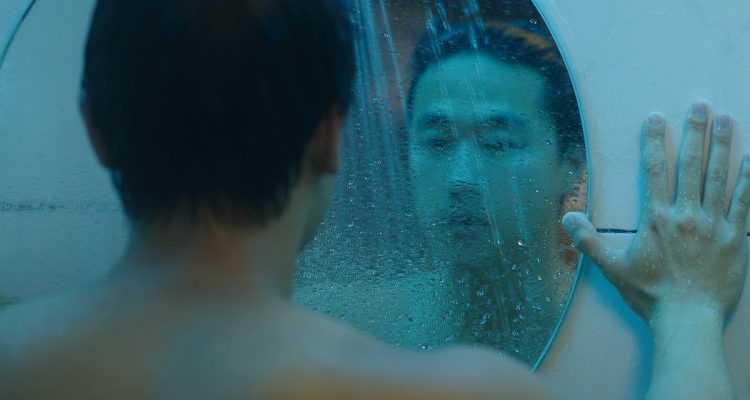Director Andrew Ahn came out to his parents as gay with a short film — after making them star in it. Since “Dol (First Birthday)” (which premiered at Sundance in 2012), he’s come a long way, with his first feature-length film “Spa Night” recently opening to critical acclaim. The film follows 18-year-old David (Joe Seo) coming to terms with his sexuality, his Asian-American ethnicity and his future, with the looming threat of college on the horizon, as he finds his desires at odds with those of his community and parents. Ahn tackles each subject with an immense and striking level of intimacy that makes it difficult not to connect with, or at least feel the weight of, each of the themes imposed on the main character. It is a confident, nuanced, and extremely personal film that marks the start of a promising career for Ahn.
What really struck me about the film at first was how personal it felt and how accurately it captured the insecurities of being young and Asian and gay.
The film might not be exactly autobiographical, but I do feel a kinship with the main character, David. He has these thoughts, feelings and fears in the film that I have felt in my life. Some of the specifics are really different — David is an only child, and he’s struggling academically; meanwhile, I went to college, and I have an older brother. But emotionally we’re very similar. I really think that personal film is interesting because you get a level of insight that you can only achieve by being that person.
How about the people in your family? How did they react to finding out you were gay?
I was expecting the worst from my family. When I came out to my family here, they were actually very supportive. It wasn’t 100% great — and that wasn’t an issue. There were things we needed to talk about and things we continue to talk about. I made it worse in my head, and I think David does too: A lot of his worries — this paranoia, this uncertainty — only really exist in his head, and it’s amazing how this can create conflict and torture someone. In many ways in the film, you don’t have a great sense as to whether or not David’s parents would disown him, but you do get the sense that he doesn’t want to disappoint them, and that’s the real source of the drama.
David’s character really stood out to me as a silent protagonist. Did anything influence your decision to not really give him a voice?
In my development of that character, I was thinking a lot about someone who felt a little stunted — who was physically a man with sexual desires, but emotionally and mentally still young. It is that tension that really catches him off guard. He is interested in and drawn to the gay cruising that happens at the spa, but he doesn’t quite have the capability to process it. I made sure that he wouldn’t be super-articulate and extroverted, [that] there’d be something about him that’s self-guarded and withdrawn. I still do think he’s a very active character, and that he makes choices, even if he isn’t interested in talking about them. That felt especially true for the type of character that I was interested in.
I also feel like the film is kind of quiet as a whole, unsentimental, in spite of what the subject matter or the coming-of-age genre would lead someone to believe. What led you to pursue that route?
It’s pretty funny actually — I was really surprised at how much dialogue was in the movie. I think it’s the most dialogue I’ve ever written in one of my scripts. I think it might just be my style. There’s also no score in the film. I think there’s something about silence that draws people into a movie and forces you to listen, instead of blasting you out. I think because David’s such a quiet character, if I had score or a lot of dialogue, you would lose him. I knew that if I wanted to tell this story about this particular kind of protagonist, I would have to cinematically adjust to him.
We tried a score at one point: My editor wanted to at least experiment with it, and I thought it was a terrible idea and I hated what he did, so we scrapped it. What I did talk about a lot with my sound designer was how to draw out the musical moments in the film. There’s the drip of the sauna, the karaoke song, the song that the Dad sings when he walks through Koreatown drunk. There are these moments, they just aren’t anything like the standard movie score.

